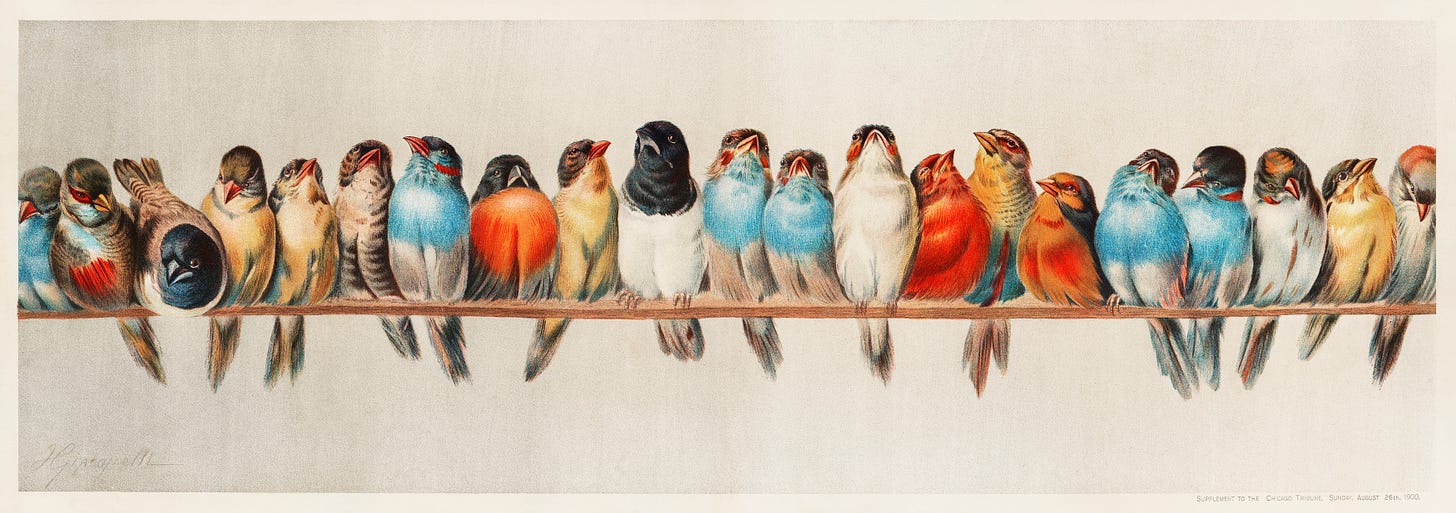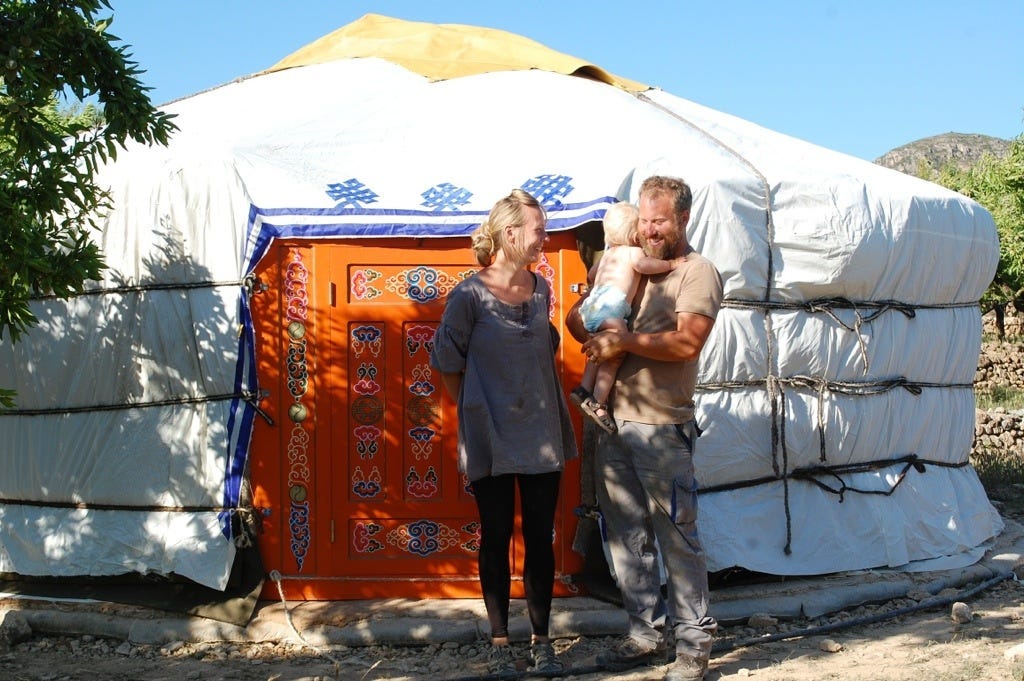“Well, East Coast girls are hip
I really dig those styles they wear
And the Southern girls with the way they talk
They knock me out when I'm down there…”
As the school choir blasted out a slightly weird rendition of California Girls I lurked in the back row as instructed by my music teacher. I must have been about nine or ten and it was a well-established “fact”, and a running joke in my family, that I was tone-deaf. It seemed that my music teacher had also got the memo as I had been categorically told that I needed to mime singing. My voice was clearly jeopardous to the performance and that could not be tolerated. So I gamely lip-synced in the background, a smile plastered on my face as I bobbed along to the beat. I liked the music and it didn’t seem like too much of a big deal that I didn’t have to make sounds. In fact, it was somehow a relief to be silent and to mask my perceived flaws.
About four years later I stood in front of another teacher in another school. I was making sounds this time but they seemingly made no sense as she looked back at me dumbfounded.
“Have you seen my Back?” I repeated for the tenth time. “I can’t find my English Back.”
I tried once again. My tongue an unfamiliar contortionist in my mouth, my cheeks flushed with embarrassment and frustration.
The problem I was facing was a lack of authentic identity and a desperate desire to fit into my new tribe. I had recently moved from a school in my native Yorkshire down to a “posh” school in the South of England. On arrival jokes about flat caps and ferrets (the essential signifiers of someone from the unappealing North of England if you are a Southerner) followed me around as people marvelled at my flat voweled accent. Until that point in my life I don’t think I had ever really considered my accent. Bath or Baath? Pasta or paasta? Buck or Back? So, attempting to minimise having the piss taken out of me, I did what we all do so often in life, changed myself to fit in better. I veiled my own authentic nature to be acceptable.
Eventually, after an exasperating game of charades, she worked out that I was searching for my “English book”.
I quickly adapted, getting better at posh-speak, and with that, the tension and teasing eased as I slotted into my new circumstances.
Part of the connective joy of my new friendship group in this new school was the discovery of guitar playing. My roommate taught me some Clapton riffs and I was sold. Eventually, we formed a 90s grunge cover band and spent joyful evenings and weekends thrashing out Smashing Pumpkins and Pearl Jam hits. I didn’t sing of course. But I did find an outlet of musical expression and a coherence of energies with my bandmates in those moments when the song came together into something we could whoop with delight at.
After school, I realised that, as I was “tone-deaf”, playing the guitar was less fun without the accompanying melody and lyrics and so eventually I put it away. Around the same time I moved back North and found my vocal chords begin to relax back into their native accent. A Baath became a bath again. I noticed how good that felt but also how immediately self-conscious I felt whenever I would revisit my old-school mates down South. They seemed surprised all over again that I was really a Northerner. It took me many years to accept my voice as it naturally was.
Persona non-Grata
This social modulation urge is a strong one. When we lack a fully grounded, fully individuated sense of self, it’s obvious that we will adopt inauthentic mannerisms, dress codes, behavioural patterns and social cues in order to “get along and get ahead” in search of that most essential need of social mammals, belonging. But at what cost? Many of us may spend the whole of our lives wearing the manufactured mask of the persona out of a fear of rejection.
But if we perpetually hide behind that mask - persona being the Latin for the mask worn by dramatic actors - we miss the most essential form of belonging. Belonging to our full authentic Self. This is a form of self-denial that requires immense life energy to perpetuate. To spend one’s life in “performance” mode is to be continually manufacturing something that is not you, and that is a Herculean task.
To release ourselves from the responsibility of persona maintenance is to come into full relationship with who we really are. And that can be really difficult when we feel there is a threat to letting the mask slip. The threat of not belonging and the threat that we are lacking without it. But what is that actually a threat of? Not belonging to a social-vocational identity? And is that threat real or merely imagined?
For me, the ability to loosen my clingy attachment to the need for social-vocational acceptance has been supported by a perceptual shift of the whole notion of belonging in the first place. What if we belonged to more than just this social-vocational layer of reality with its pecking order and the underlying sense that we are constantly playing Snakes and Ladders? Either getting ahead or slipping back down a level.
For me, the act of getting to know myself better has been a process of recognising that I belong to the 10,000 things that Taoism speaks of. That I belong to the whole of life by the simple virtue that I am alive. I didn’t have to earn that right by performing to social expectations. I was gifted my life by Life itself without any strings attached.
I belong because I exist. Full stop.
There’s an immense amount of space in that realisation. Space to fill out into all those aspects of self that I had been compressing and repressing, trying to minimise my full self so that I was small enough to hide behind that actor’s mask. And because I don’t have to hold myself in with the same tension, that energy is freed up again in my system.
So the phrase persona non-grata gets turned on its head. We can recognise that there is a difference between the fundamentally welcomed Self and the conditionally welcomed persona. It’s not that we are unwelcome, it’s that the mask - the persona - may or may not be unwelcome. We could see this phrase instead as an invitation to authenticity not an expectation to more restrictive conformity.
The Container
“A friend is someone who knows the song in your heart and can sing it back to you when you have forgotten the words.”
C.S.Lewis or Shania Twain or Anon. depending on who you believe on the internet ;-)
About 10 years ago some friends of ours followed us out from the UK to live with us a while in an olive grove in Catalunya. Ana, a native Spaniard felt that the time was right to come home.
They built their yurt at the other end of the land from ours and our young kids grazed and explored their ways between our two homes in an open, reciprocating migration loop.
Ana is a musician. She plays piano and guitar and can turn her hand and voice to pretty much anything musically. It’s just in her bones. And joy emanates from that musical expression. There is no persona in that music, just pure person. And she loves to invite others into that joy.
She would invite us for Christmas sing-alongs or Halloween sing-alongs or Easter sing-alongs or birthday sing-alongs. She held open a space for me to drop the mask of myself as a tone-deaf mime artist and begin to let that voice out again. She inspired me to pick up a guitar again and I felt some of that joyful musical expression circulating again in me.
I was very shy with my voice. Singing quietly, letting others fill the spaces with their voices, but nevertheless, I was singing and it felt like there was an earthly seedling magic there. And Ana was the safe container that protected the fragile germination of my authentic singing voice.
Her grounded, open joyful expression was modelling and sharing what I needed to discover my own song.
The Key
Around the same time I began experimenting with capos. A capo is a device that clamps the strings of a guitar at whichever fret you choose. This changes the pitch of the instrument and therefore changes the key of the chords you play. Of course, I’d owned a capo since my teens but it was only now that I discovered it for what it offered me. The key to unlock my own song. Suddenly I noticed that the melody came much easier to me if I simply changed the register of the guitar. I wasn’t tone-deaf, I just needed to find my register. And in that, something further loosened.
Ana had offered me safe space to be heard. The capo enabled my expression with as little effort as possible. Changing key with this key was the missing piece. I could sing others’ songs, write my own songs and perform, often singing on my own, in front of friends and family.
Suddenly I had all the ingredients necessary to cultivate the ground for authentic expression.
Modelling grounded acceptance
“Most men lead lives of quiet desperation and go to the grave with the song still in them.”
Henry David Thoreau (or perhaps not…Google it)
We need more Anas in the world. More modellers of authenticity and joy. We need more communities of practice where it feels safe to come out from behind the mask and share your sensitive authenticity and allow it to be nurtured and grow into something. And within these spaces, alongside people who, because they are comfortable in their skin, allow you to feel comfortable in your own, we need to explore our own experience to find those keys that unshackle us. We need to find the very particular key that fits out very unique set of locks.
This of course is not just a musical conundrum but one of authentic expression across the board. Seeking out those grounded presences, finding a community that “gets it” and finding the key that fits you, whether than be a spiritual, psychological, ecological, relational or any other enabling practice is a recipe for profound transformational growth. And it might be one of the most important choices of your life.
Imagine the amount of creative, life-affirming energy that could be freed up if we all just agreed to drop the masks, to support each other to be our natural authentic selves. What could be done with all that energy in service to our greater belonging among the 10,000 things? In service to the flourishing of life as life?
And what beautiful songs we would sing.






